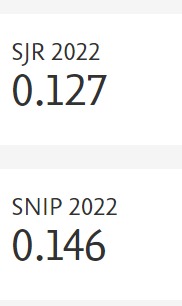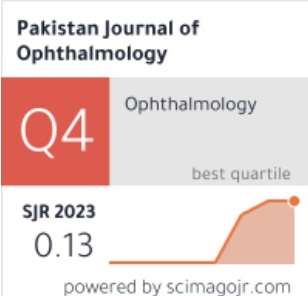Molecular Analysis of OCA1 and OCA2 Genes in Sindhi Inbred Families
Doi: 10.36351/pjo.v40i3.1813
DOI:
https://doi.org/10.36351/pjo.v40i3.1813Abstract
Purpose: The purpose of this study was to identify the common mutations of (Oculocutaneous albinism) OCA1 and OCA2 genes in Sindhi Inbred Families.
Study Design: Descriptive cross-sectional study.
Place and Duration of Study: Liaquat University of Medical and Health Sciences (LUMHS), Jamshoro, Pakistan, from October, 2020 to September, 2022.
Methods: Forty-four patients of eight families with clinically diagnosed OCA and Ocular albinism (OA) with or without family history were recruited for this study and all affected individuals other than OCA were excluded from the study. A single missense substitution was identified in the OCA1 and OCA2 using PolyPhen 2, Mutation Taster and I-Mutant software.
Results: Out of 8 randomly chosen OCA afflicted families, there were two carriers and two affected individuals identified in family III. In exon 4 of the OCA1 gene, a common mutation (homozygous) c.1255 G>A (p.Gly419Arg) was identified. In three-generation pedigree for the albinism family VII was identified, including two affected, one carrier, and two normal people. Participants in this family who carried the 1045-15 T>G mutation in the OCA2 gene were affected.
Conclusion: Albinism affected individuals in Pakistan have varying phenotypic and genetic presentations. This is due to the fact that the population of Pakistan and those of Sindhi ancestry are heavily inbred, consanguineous, segregated, and afflicted by hereditary diseases.

Downloads
Published
How to Cite
Issue
Section
License
Copyright (c) 2024 Jalpa Bai, Hina Shaikh, Ghulam Mujtaba Sohu, Ashok Kumar Narsani, Ali Muhammad Waryah

This work is licensed under a Creative Commons Attribution-NonCommercial 4.0 International License.






